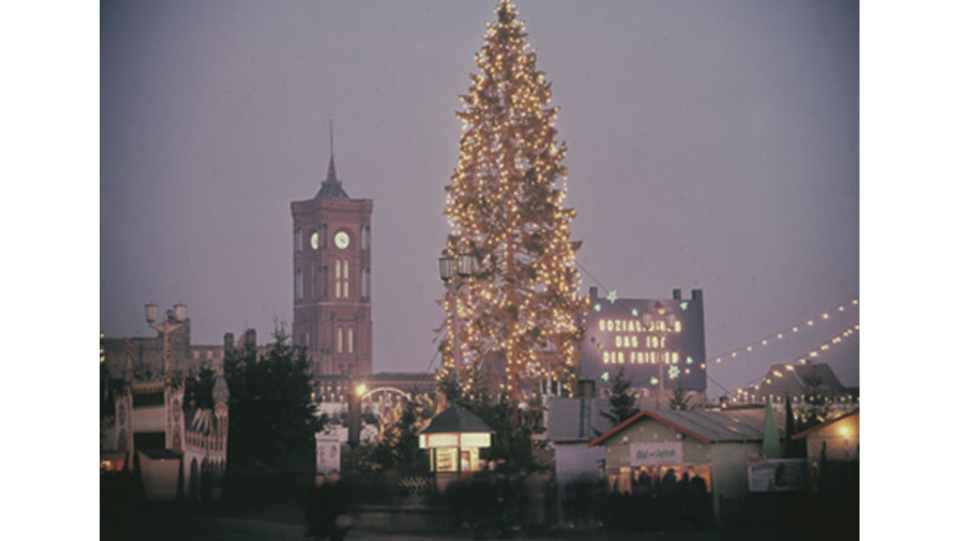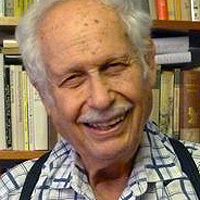
BERLIN—Although an awful lot has been happening around here, I’m afraid I’ve neglected my irregular monthly stories. I have been tied up in a large writing job dead-lined for the year’s end, also some filming plus some pleasant visits from abroad, including my two grandsons from far-off (unfortunately not my favorite—and only—granddaughter, also far away). And then there were some Christmas parties I really had to attend. So—no new report at the moment. Now I (and you) must wait until 2023 for the next one.
However, I do want to send this brief greeting for whatever holidays you may perhaps be celebrating, with good wishes for the new year, and my thanks to many of you readers for your often very interesting mail, for designs and friendly messages (which I can’t always manage to answer!). So here goes:
Although raised as a pagan non-believer (and a Jewish one at that) I not only welcomed Christmas presents but also enjoyed some Christmas carols. Not the annual holiday kitsch, but old songs like Good King Wenceslaus, The Boar’s Head, Adeste Fideles—with memories of the homeland of my younger days so very far away. And I always loved the Christmas Oratorio by Bach and the Messiah by Handel—and had moved quite close to the birthplaces and home territory of those two giants.
These memories led to reflection on how many years and decades had passed since I first enjoyed such music and sang those songs. That is a rather melancholy path of thought—but it calls to mind a little poem by a man who is far less famed, and unknown here in Germany, but who also had his little achievements—Ogden Nash. I am no more a loving dog-owner than I am a devout churchgoer, and the number of years hardly matches, but I still enjoy it:
O my little pup ten years ago was arrogant and spry,
Her backbone was a bended bow for arrows in her eye.
Her step was proud, her bark was loud,
Her nose was in the sky.
But she was ten years younger then,
And so, by God, was I.
A little melancholia is permissible, I think, and when I look around the world, near and far, I must recall a melancholy bon-mot from the GDR-era: “This year was rather middling in character: a little worse than the one before it, but a little better than the one that’s coming.”
I hope that is at most half-true. But even when I look fearfully, even tearfully at newspapers, at TV and internet and must so often despair at the tragedies in all too many regions and recoil at so many threats—military, atomic, ecological, fascistic—I refuse to curl up in fetal-shaped despair.
There are some signs at least of a growing demand for peace—far, far too weak as yet but, hopefully, they may well accelerate. I am able to take heart when I hear of the successes of ordinary working people in Colombia, Brazil, Sudan; of demonstrations in Delhi, Dhaka, Rome, Paris, and elsewhere; of courageous struggles at seemingly unlikely sites like Amazon, Walmart, Starbucks; of action in the fight for climate rescue.
Now heading toward another advanced round birthday, I cannot expect to see those victories which friends, comrades, and I dreamed about in 1945 and in other years long past. But I can at least say to myself that I did what I could as best I could.
I am grateful that I was very, very lucky. I was never forced to engage in shooting anyone in warfare. I was lucky enough to have a wonderful family, and if my mother’s reflections have any weight, perhaps I had life better—despite or because of its great crossover 70 years ago—than if I had remained in my home country. How can one ever know?
Looking both back and forward, I can summarize my beliefs, my dreams, and my hopes for the future by again recalling songs, two of my greatest favorites. One, scribbled down by a miner’s wife in Harlan County, Kentucky, nearly a hundred years ago, is defiant, still so necessarily defiant:
Which Side Are You On?
Don’t scab for the bosses! Don’t listen to their lies!
Us poor folks haven’t got a chance, Unless we organize!
Which side are you on? Which side are you on?
And the other, more recent and—as a complement—more visionary:
Imagine
Imagine all the people, Livin’ life in peace…
Imagine no possessions… I wonder if you can
No need for greed or hunger, A brotherhood of man.
Imagine all the people, Sharing all the world…
You may say I’m a dreamer, But I’m not the only one
I hope someday you’ll join us, And the world will live as one.












Comments